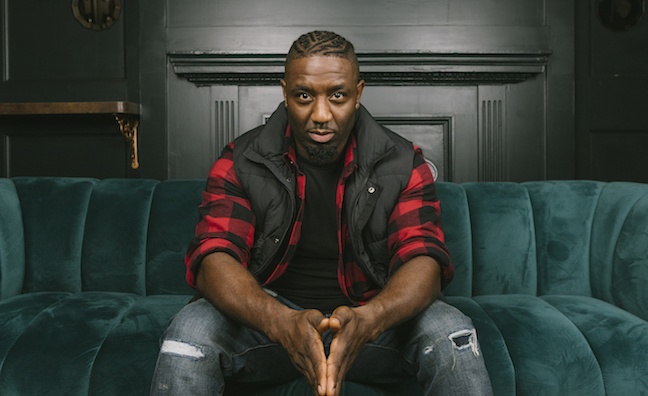Power Up co-founder Ben Wynter has urged the majors to get involved in the initiative to help tackle systemic racism in the music industry.
One year on from Blackout Tuesday, the music industry is reflecting on its impact and the work that still needs to be done. Yesterday we heard from all the major labels’ on their progress so far. UK Music is also measuring the work done on diversity.
PRS Foundation’s Power Up recently announced its first year of 40 participants, both music creators and industry professionals.
Here, Ben Wynter looks ahead to the big plans for Power Up and calls on the majors to get involved…
What do you think about the efforts made by the major labels in the past year?
“I think they're doing some really good work supporting community projects. But if we're going to move the needle within the industry, and we're going to correct our own industry, then the majors need to start taking a look at how we go about doing that. And how we go about ensuring that there are more people of African origin, Black people in senior management roles.
“I think the focus at the moment with the majors is to ensure that more people from Black and African backgrounds are coming into the industry, which is fantastic and they can only be applauded for that. But then the problem is, what happens to those people if there are no pathways into senior management? What ends up happening is we're left with the same thing, which is huge dropout rates and disenfranchisement because there are no progression routes. We’d love to engage with them a lot more, and look at how we can work with them to ensure that it's being looked at.”
What are the positive results of Blackout Tuesday – and what more needs to be done?
“A lot of good has come out of Blackout Tuesday, there's a lot of awareness. We’ve seen the formation of organisations like BMC, BLIM, and I think that's amazing. It's great to see that there's money being spent in the community. The majors probably made the most noise in terms of the money they're going to spend, and what they're going to do to create change. If I'm going to be candid, they haven't quite done enough to effect change within our own industry. I think they're doing an amazing job putting funds into education, historical resources, community and into early stage projects. But it does beg the question, how do you fix an industry if you don't deal with the actual root of the problem, which is systemic racism that's taking place at management level, and at senior management level, and how Black people get progression within the industry. If we don't address that, I don't actually understand how things will change.
“I'd like to see the majors do a lot more in that regard. Seeing what the independent sector is doing is amazing, when you look at Ninja Tune and Beggars. When we look at the efforts that are being made by the trade organisations, as well as Creative Scotland, YouTube, Google, Spotify etc. it's great to see all of that. But we have to be joined up with the industry to make the change, and the majors are a part of that change that we want to see.”
There's a lot of work for us to do, but we're very proud of what we've achieved in year one
Ben Wynter
How significant is this anniversary for Blackout Tuesday and the future of the music industry?
“I think it's a significant moment for the industry in general. For Power Up, it’s significant in the sense that we can mark it and look back. Blackout Tuesday was the day that this was conceptualised, so to look a year on and see that we've got our first batch of participants is amazing. To know that we've got so many companies that are partnered and on board is amazing. And to know that we've had over 100 Black executives and creators engaged in creating Power Up is an amazing thing.
“But Power Up isn't about marking Blackout Tuesday. It's about something that, over the next 10 years, we hope can effect change and can produce revolt. Because when this came about out of Blackout Tuesday, it wasn't about notions of support. It was about taking action to make our industry better. And whilst I think it's important that everybody takes a second to think about Blackout Tuesday, to reflect on the events of last year and how far they've come as an organisation, and what we've achieved as Power Up, I'm not here patting ourselves on the back. Because we haven't achieved what we set out to achieve yet.”
What’s the next stage of Power Up?
“It is important for us to ensure that we keep doing the work that needs to be done, so that we can achieve the goals that we set. Those targets are big targets. We’ve rolled out the first stage of Power Up, which is the participant network. Now we're about to roll out the Power Up movement, which is about gathering data, lobbying and setting targets. We're going to be putting together a Power Pledge as well, to help organisations ensure that they are sticking by the black square they posted and are starting to get more Black people into senior management, and asking organisations to sign up for the pledge. So there's a lot of work for us to do, but we're very proud of what we've achieved in year one.”
Subscribers can click here for Music Week’s Ben Wynter interview from earlier this year.
And click here for the latest cover feature with the Black Music Coalition.










